A Society of Sparrows and Harvest, or, The Smell of Burning Fields …
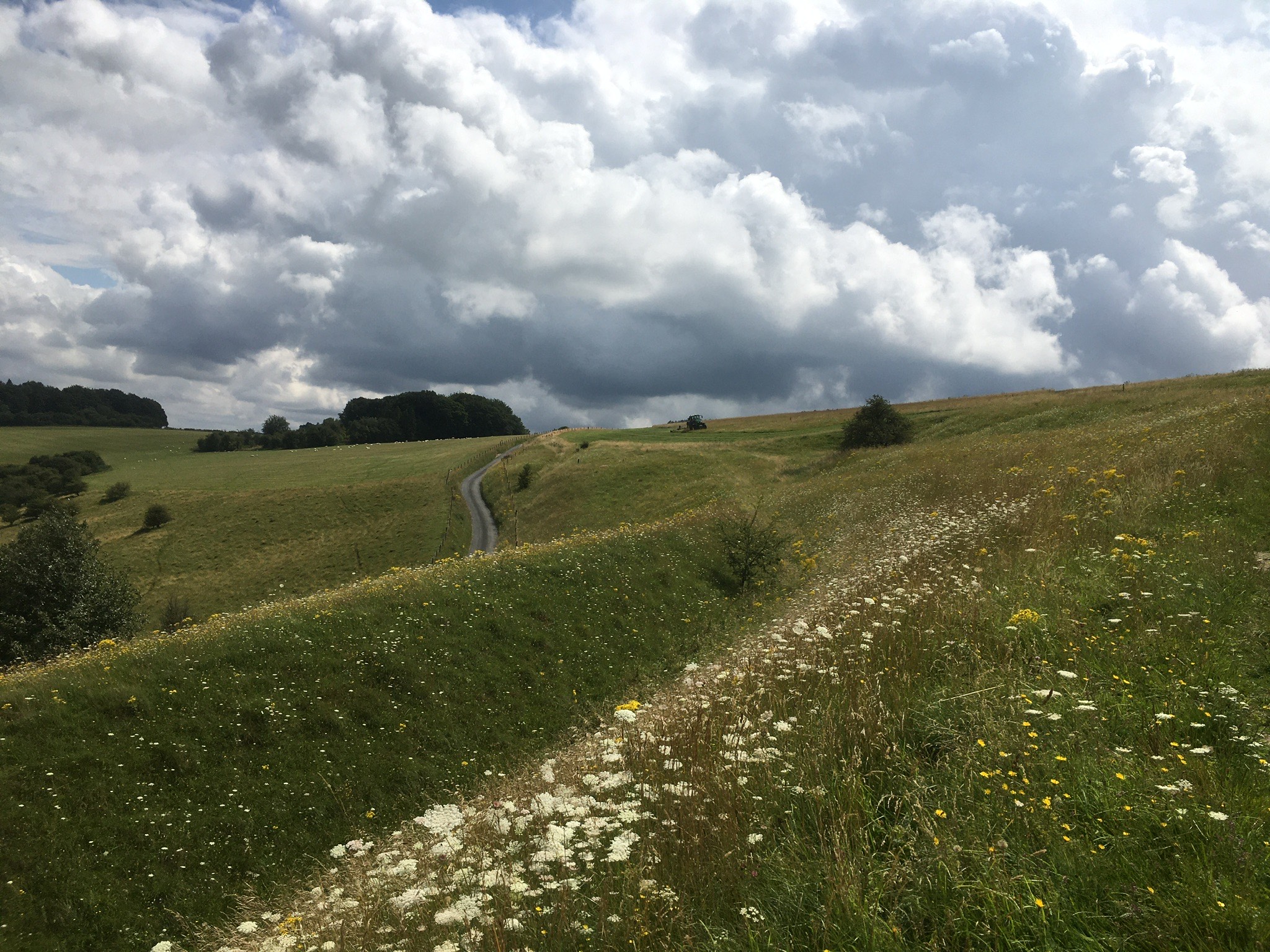
We are once again at peak sparrow. When the combine harvester begins its wide turn into Home Field, their reporting of the event almost drowns out its roar.
We hear the great machine’s billion-bee buzz, accompanied by its flotilla of header and two grain carts, from the garden. The house sparrows immediately respond, instigating a ‘hedge gather’. Part of their daily routine, it involves all sparrows to the garden hedge, outside my writing hut door. Once they are all in (no sparrow is ever excluded) an excited, loud chatter begins, with all birds talking over each other at once. I imagine they are considering the unsettling; the gleaning of the fallen, golden, swollen grains to come. Just as suddenly, a moment of absolute silence occurs in their chatter, before a flurry as they whir off, collective wings loud as the horse’s snort from the paddock.
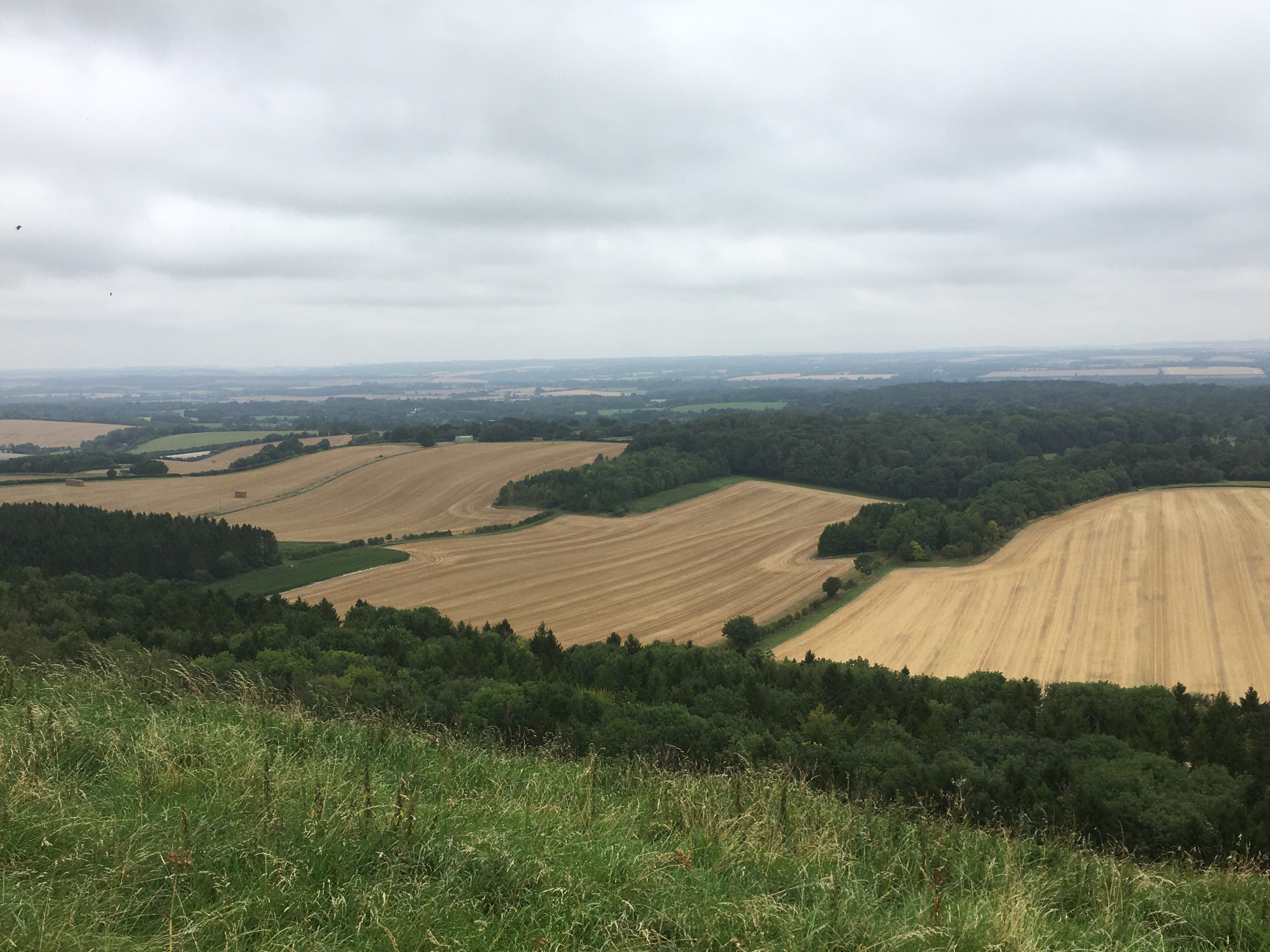
The sparrows are so much part of house and home; and we love them. We begin and end each day with them. And they are a characterful, family-minded community, if given to bickering and sometimes, violence. It is important not to put our values onto theirs – we’d be on the phone to the police or social services regularly, otherwise.
A sparrow’s life is a domestic, close one and its daily routines predictable and extremely local, if sometimes unfathomable. They are so site faithful, whole colonies can just disappear, if their habitat is removed. Aside from the boxes we’ve put up for them, the house is covered in a thick trellis home of jasmine and other climbers.
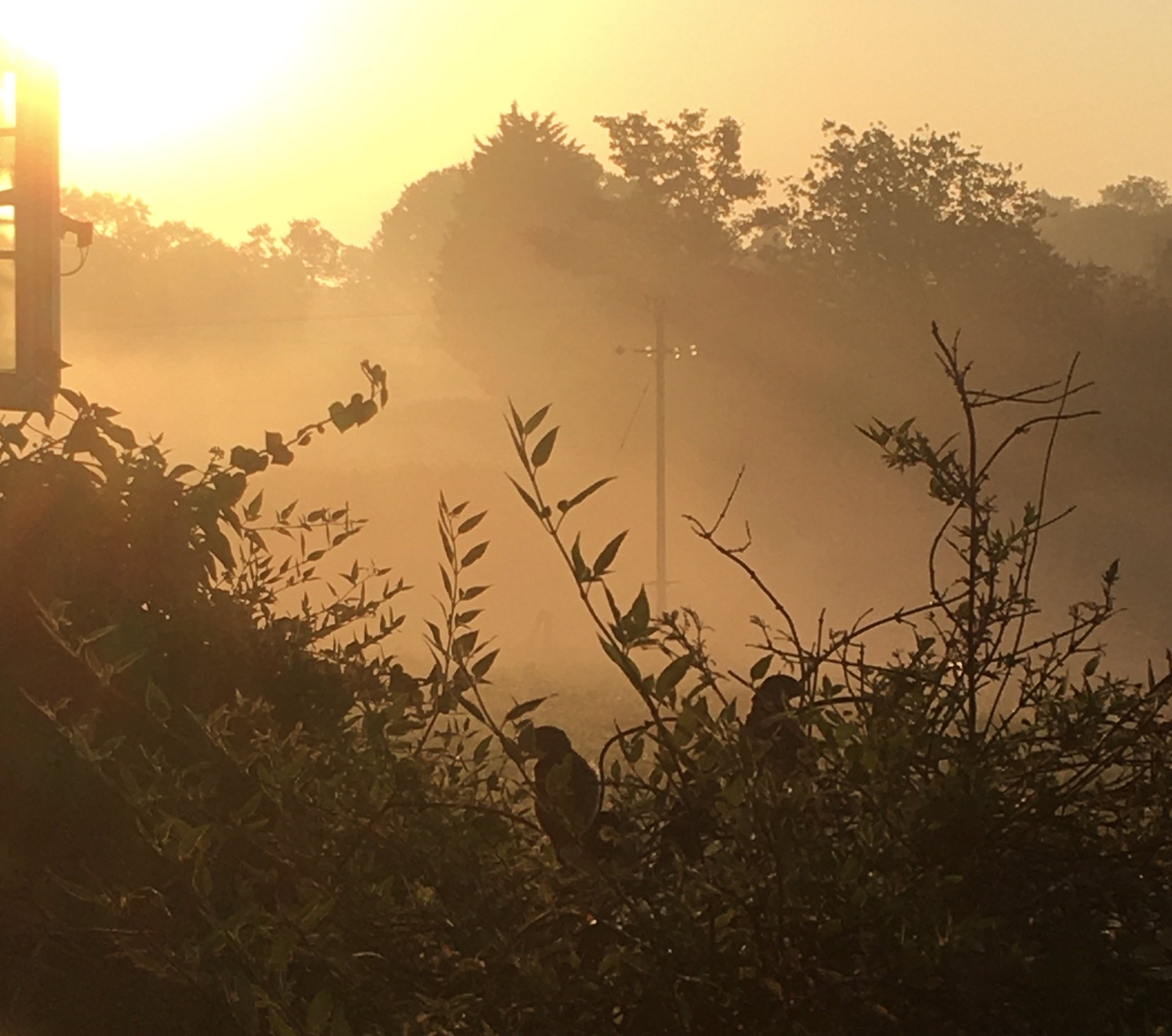
We wake with their bright, sunlit cheeping from under the eaves, and go to bed with their soft chitterings under the windowsill. In between, we enjoy and puzzle at their bickerings and gatherings, their parliaments, circuses and meetings; the arguments and pile-ons. Sometimes, they’ll peer in through the windows, fly around a bedroom, or fall down the helter-skelter of the chimney and tap on the woodburner glass to be let out. In August, they decamp daily to the cornfields, like hop-pickers and by September, they’re back to the very local.
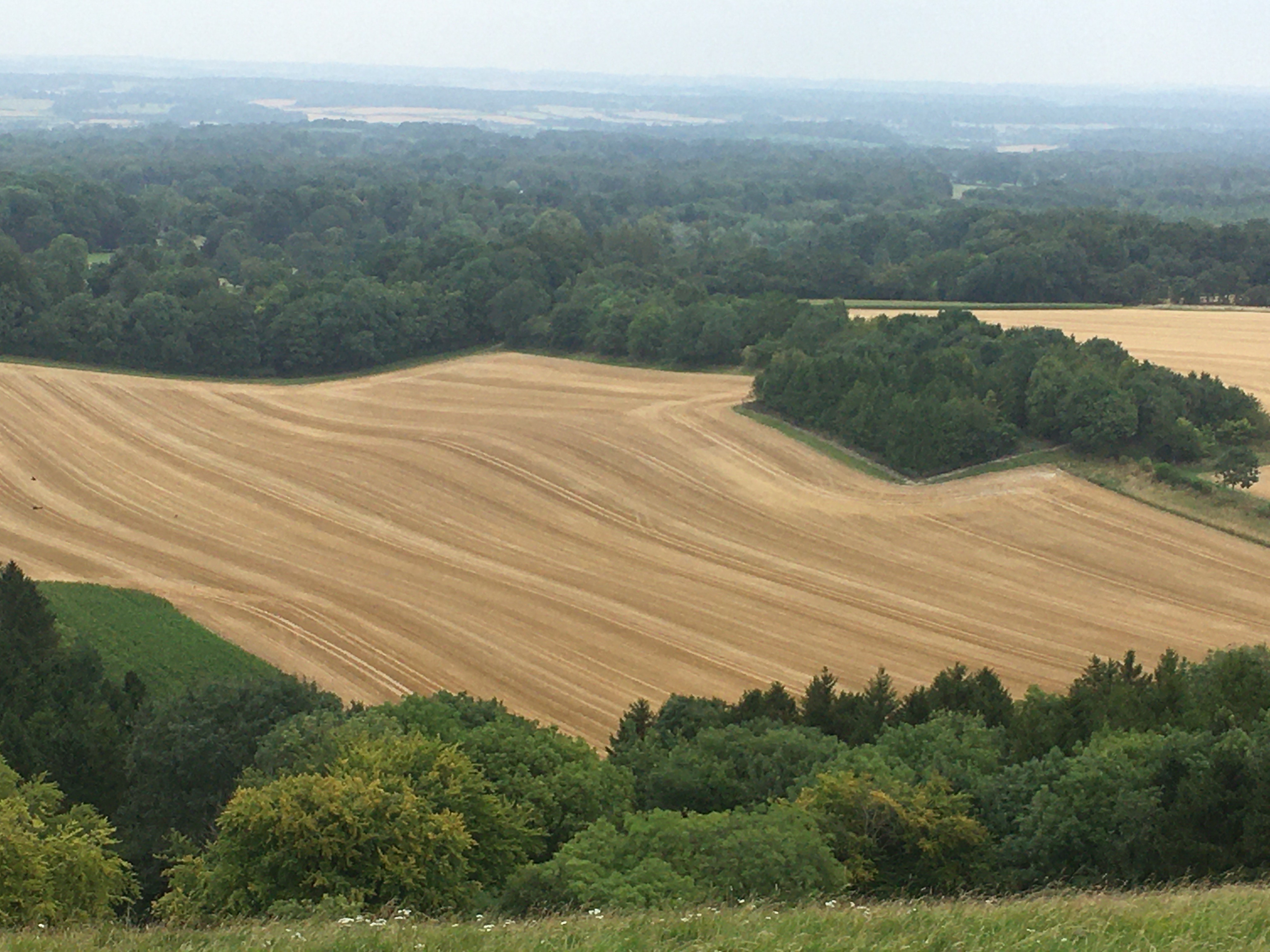
We often have to rescue them. An almost fledged chick was cruelly pulled from its nest by an impatient cock bird (infanticide from either male or female birds happens occasionally). Our latest rescue success was a feisty hen bird that went for an unplanned swim in a bucket brim full of rain water. Our daughter noticed the gathering of loudly vocalising, hopping sparrows around the bucket and went to investigate; scooping the sodden bird out. It was near death. But, put in a shoebox next to the towel rail to warm and dry, she revived enough to peck my daughter hard and fly off, squealing outrage.
We watch the harvest from the garden gate, with the sparrows. They divide into small patrols that fly out to the remaining standing corn and sit, picking urgently at the wheat ears, until the header of the machine comes too close and fells the lot, gobbling it up greedily. They regroup in the garden quince hedge, and fly out to the next stand, before it too, falls.
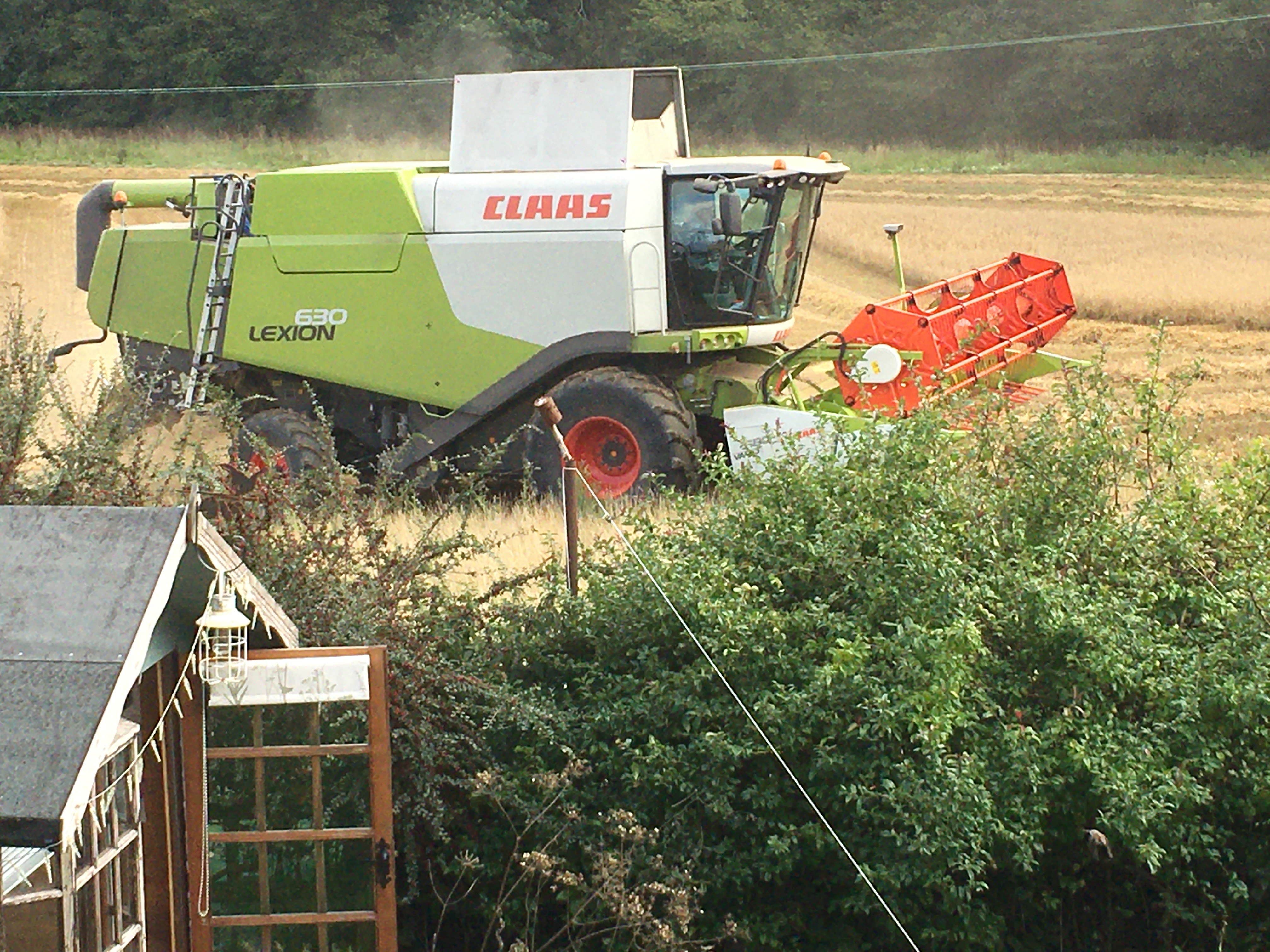
Buzzards and kites soon gather to fall in behind the combine, gleaning for a different harvest, and I watch the field corners and furrow ends carefully for other unhoused animals. A fox runs out near the end garden of the cottages – a brief, low streak of orange – and this year’s roe deer twins get up on their long jointed limbs and head for the pasture next door. Rabbit scuts bob to the hedgerow.
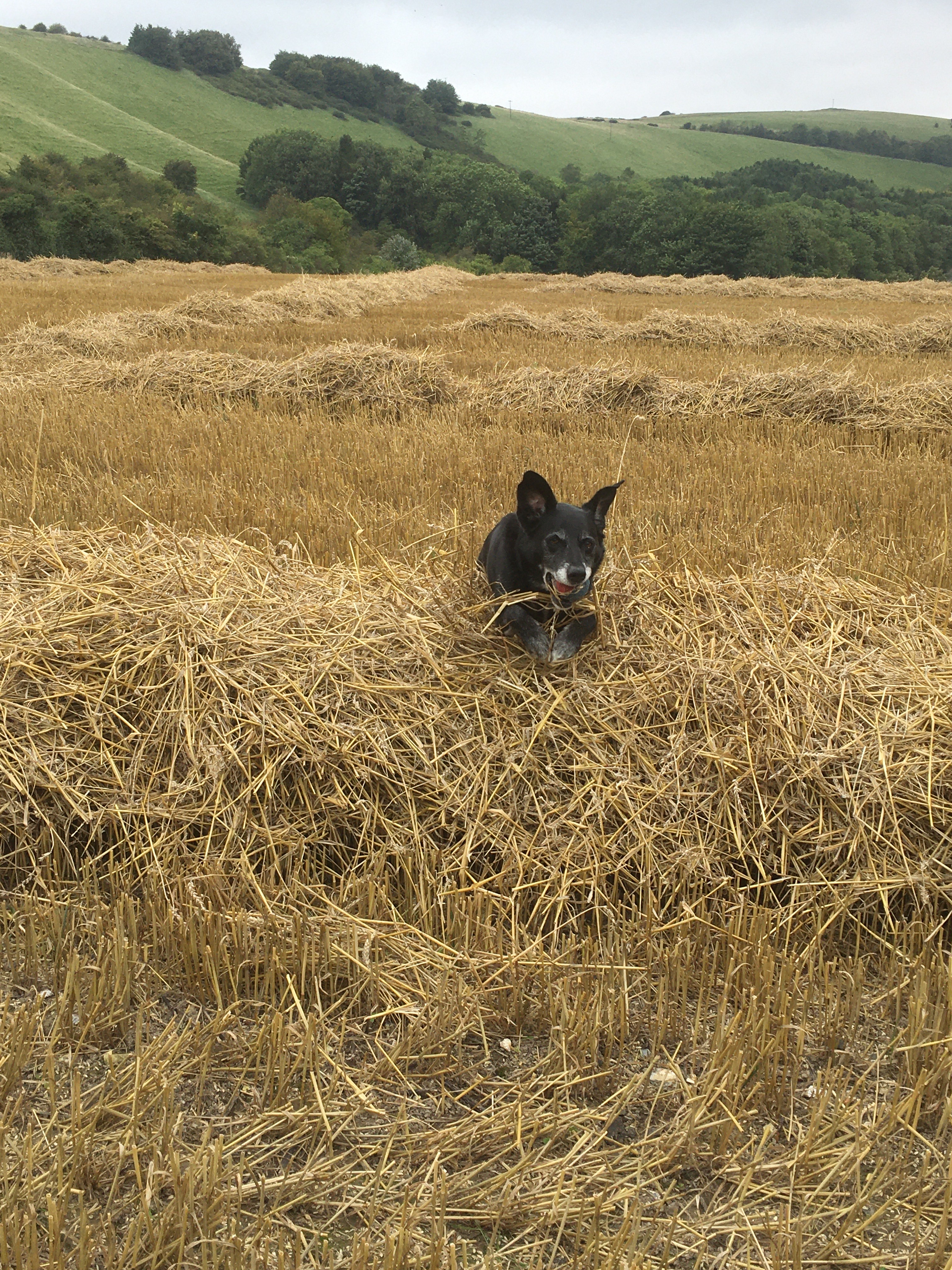
Being one of smallest fields on the farm, the two-man team are done & on to the next field, very efficiently. Now the sparrows frantically glean their loss, filling up with the grains that former cottagers here would have had themselves, ‘leazing’ – all women and children to the fields, picking up each left-behind grain or fallen ear and storing it in an apron, tipping it into jars and pots to take to the miller for flour for bread, or a special cake.
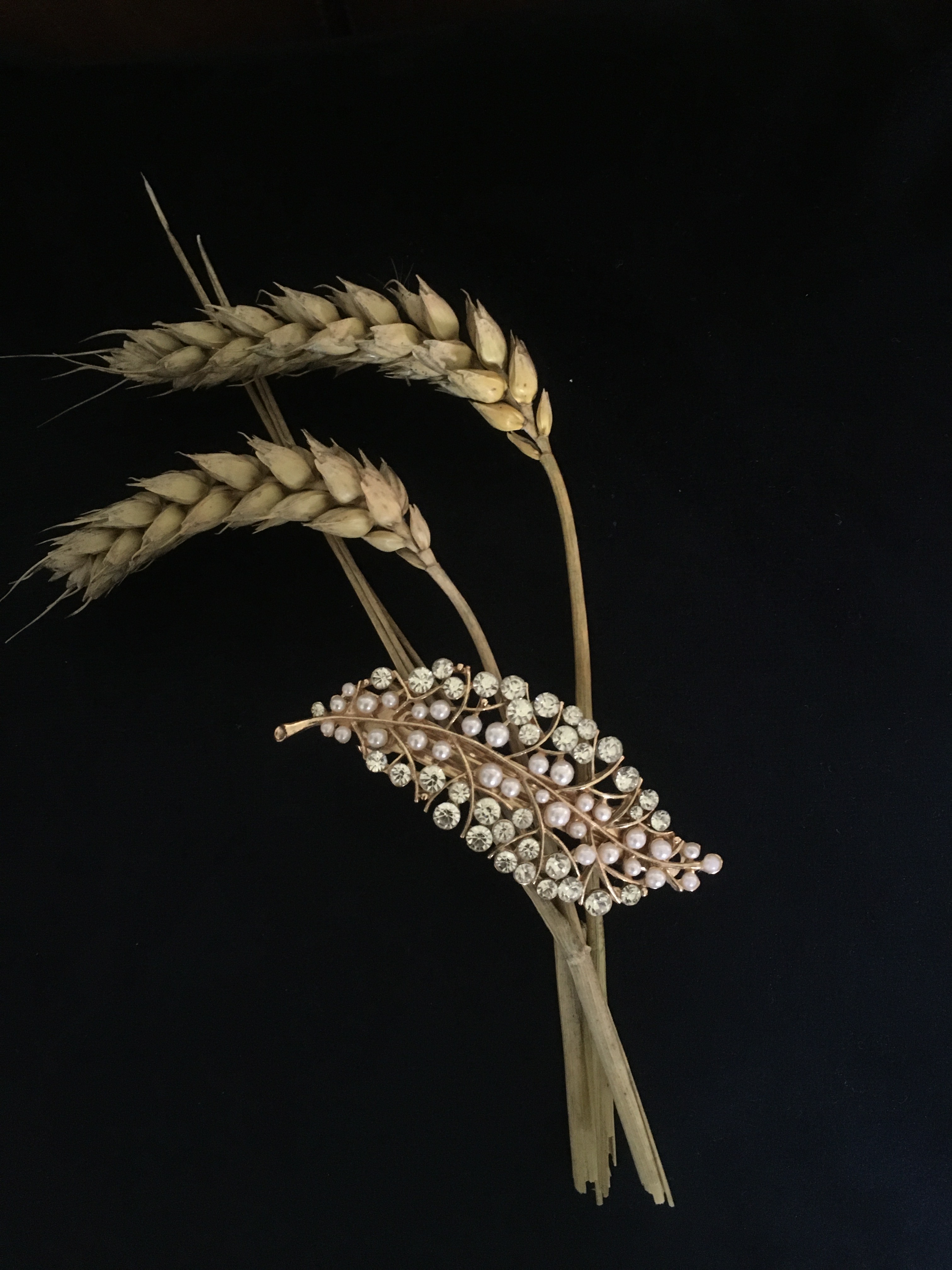
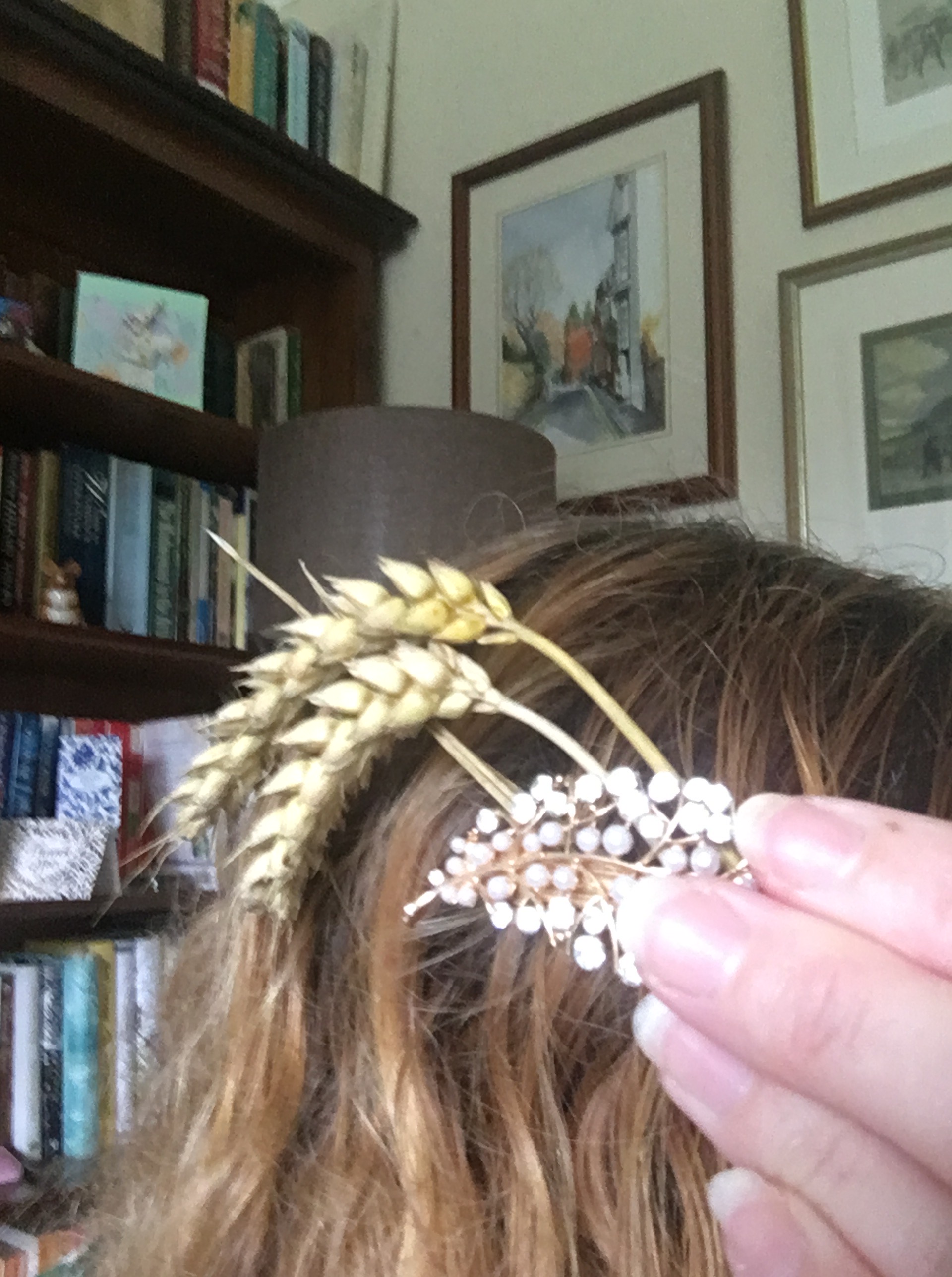
This year, for the first time we can remember in this field, no straw is being made. Instead, it is chopped into chaff and blown out the back of the combine to lie on the field in a soft, gold carpet. There are no straw windrows to steeplechase over this year – although we find them, just two fields over. Great, golden, shining thick plaits of it, in rows down the bigger fields.
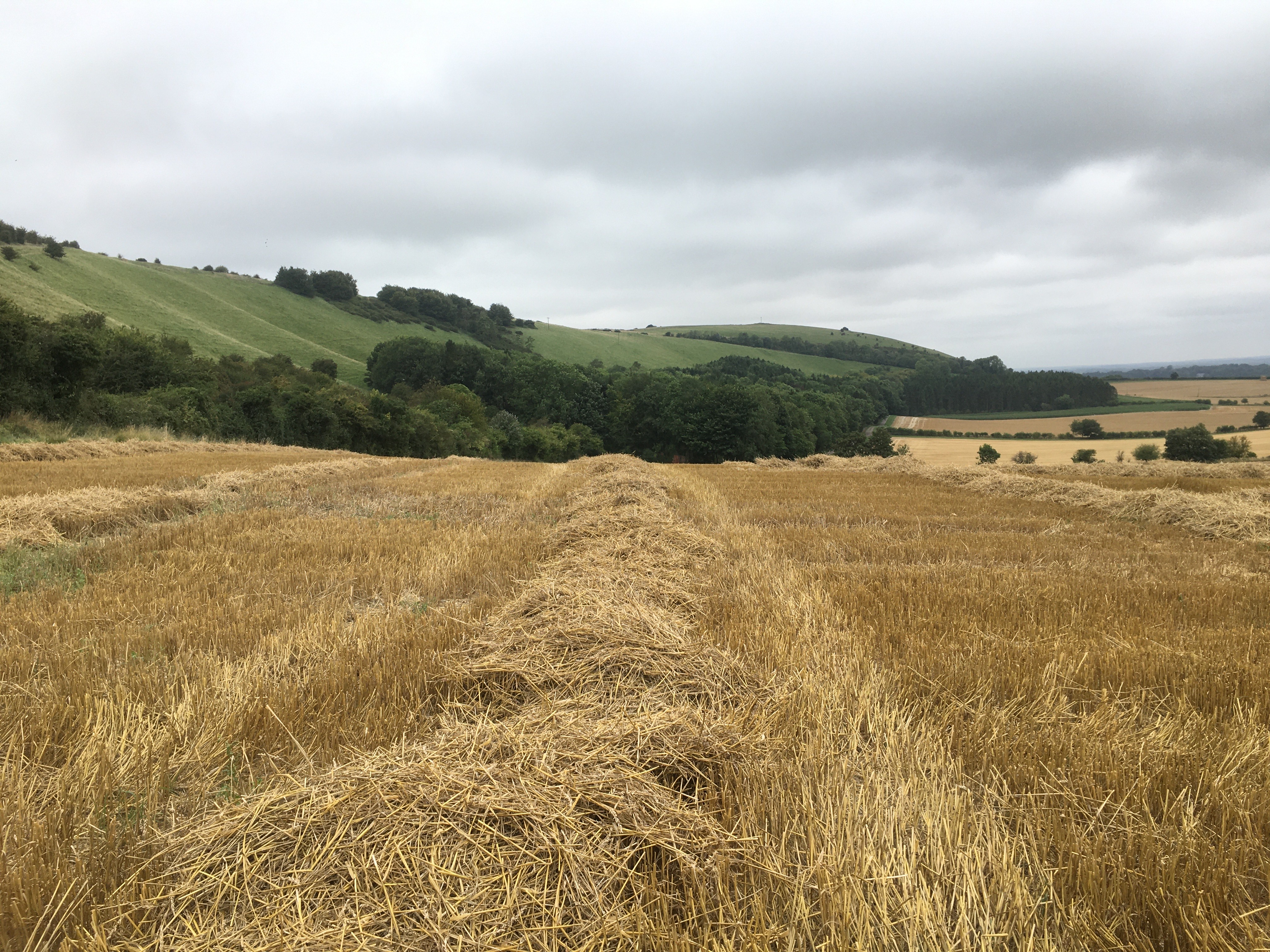
We climb the hill to look down upon it all. The dust rising behind the machines like smoke. And suddenly, it is September, and the chalk crop dust rising in thick grey plumes is so reminiscent of them firing the stubble (like they used to annually, until it was banned in 1993) I can smell burning fields. Storm clouds & the ‘bird’s nest’ blooms of wild carrot meet in the distance on the high chalk ridge. A dry, pelagic swell & heave that has never forgotten the sea it was – or, it seems, any of its stories. It retains them like heat; exudes them somedays, when putting your hand on the earth is like laying a hand on a warm body. From here, we can see far distant planes stacking uncomfortably at Heathrow, and look down onto the last field burnt in Berkshire.
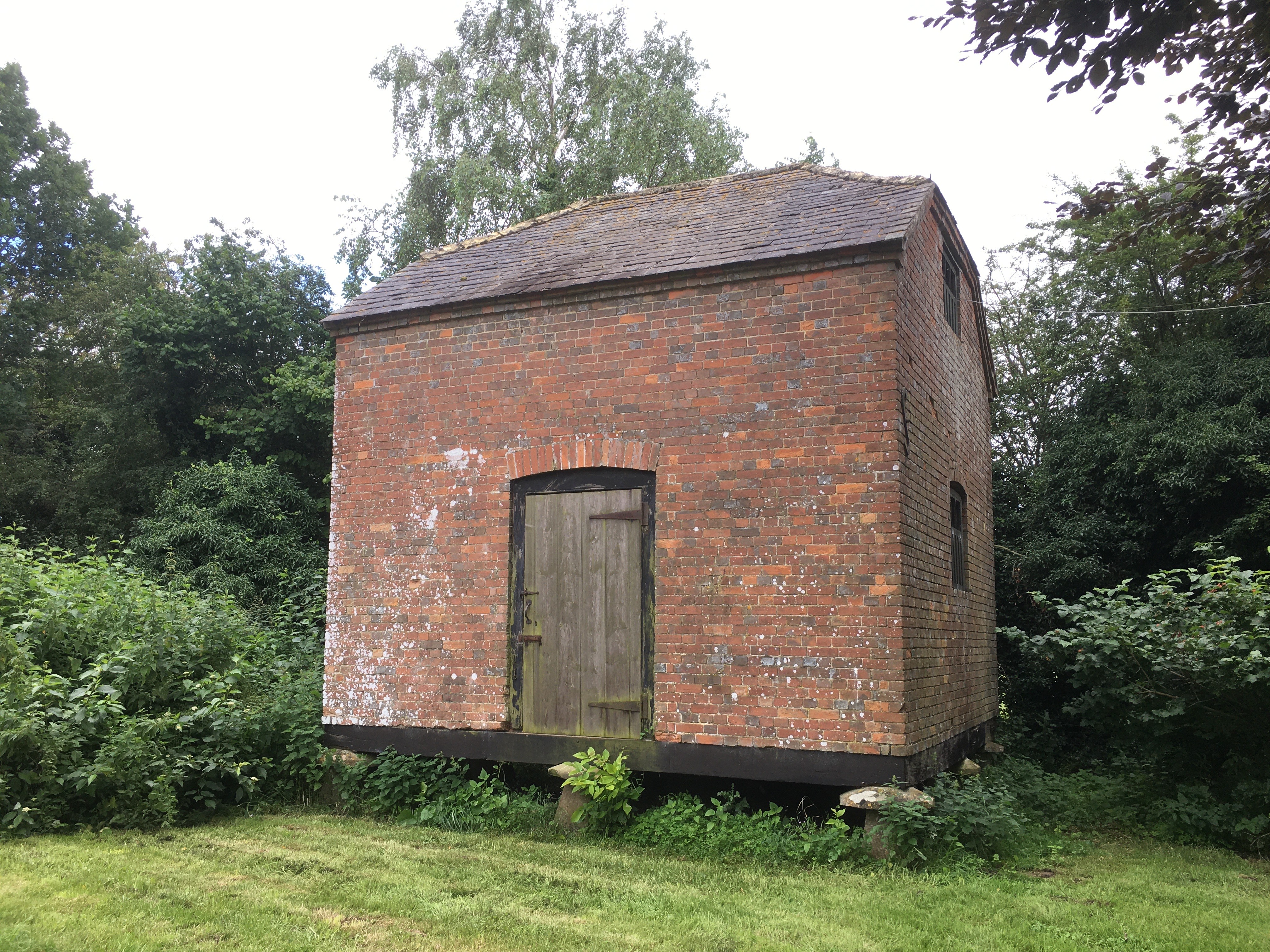
Leave a comment